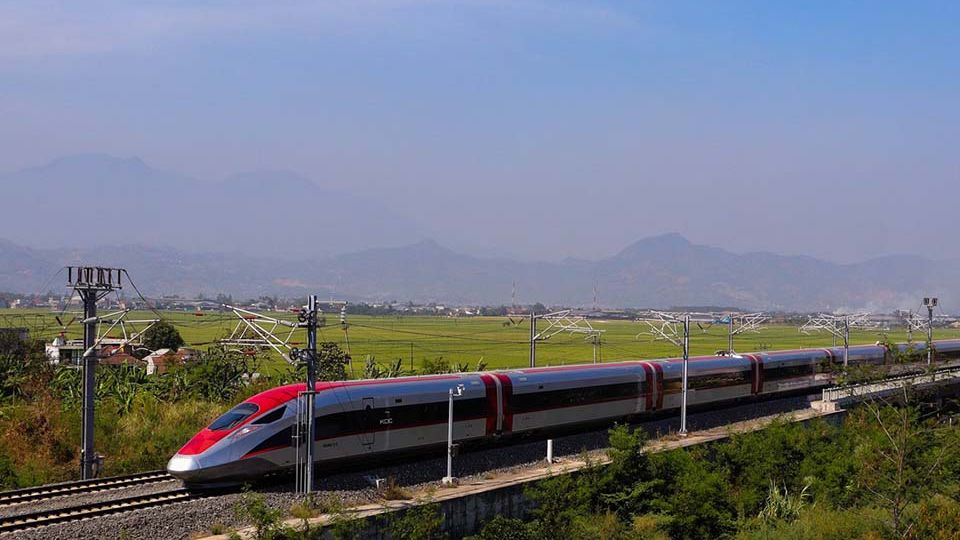April 24, 2024
JAKARTA – State-owned railway company Kereta Api Indonesia (KAI) has requested support from the government to repay its debt incurred due to the development of the Jakarta-Bandung high-speed rail (HSR) project.
The company has proposed a variety means to lighten its burden, including an increased state capital injection (PMN), tax waiver and exemption from track access charges, which are fees required to operate conventional trains.
KAI spokesperson Agus Dwinanto Budiadji emphasized the necessity of this support to maintain the firm’s operational stability and cashflow, adding that the company had submitted the proposal to the HSR Committee, chaired by Coordinating Maritime Affairs and Investment Minister Luhut Pandjaitan.
“We have submitted a proposal to the committee and are still awaiting a decision. We hope the proposal will be accepted, as it will be difficult for us to repay the debt,” Agus said on Monday, as quoted by Bisnis.com.
Southeast Asia’s first HSR project cost around US$7.3 billion by the time of its completion, leaving state-owned enterprises (SOEs) involved in the project with a liability of $4.55 billion in debt taken out since 2017, plus another $560 million to cover a cost overrun last year, Reuters reported.
The operator of the 142-kilometer service, called the Whoosh, is expected to face a deficit of Rp 3.15 trillion ($200 million) in its first year of operation, according to a December 2023 financial projection seen by The Jakarta Post.
KCIC, the Sino-Indonesia consortium responsible for the project, as well as KAI and the SOEs Ministry were not available for comment when asked about the figures in January.
Read also: Whoosh faces hefty deficit in first year of operation
Agus of KAI said the need for support was urgent since the Whoosh has become fully operational. Consequently, operating costs could lead to deficits if the targeted passenger numbers are not met, resulting in a greater financial burden.
The company has received $448 million in a two-loan facility from China Development Bank (CDB), the main lender for the HSR since its inception, to cover the project’s cost overrun.
Agus explained that some of these loans would be utilized to settle liabilities with contractors involved in the construction.
“We have not yet paid some of them. There are numerous contractors, some from China and others from Indonesia, such as Wijaya Karya. We will settle all of them,” he said.
KAI must pay 3.2 percent interest on the first loan and 3.1 percent on the second.
According to Finance Ministerial Regulation (PMK) No. 89/2023, the KAI loan for accelerating the infrastructure and facilities of the Whoosh service is guaranteed by the state budget in the event of default.
Read also: Indonesia seeks China’s support to extend Whoosh to Surabaya
In a meeting with Chinese Foreign Minister Wang Yi for a high-level dialogue on investment and economic cooperation on Friday, Minister Luhut conveyed his hopes that China would continue giving “priority attention and financial support” to the project.
This includes on the matter of extending the rail-link to Surabaya, East Java, which many analysts deem necessary to make it more commercially viable and sustainable.


